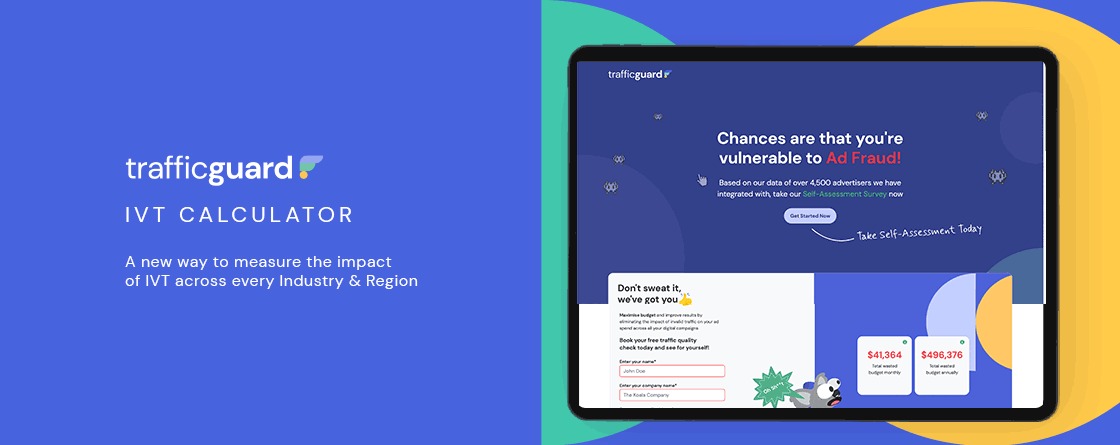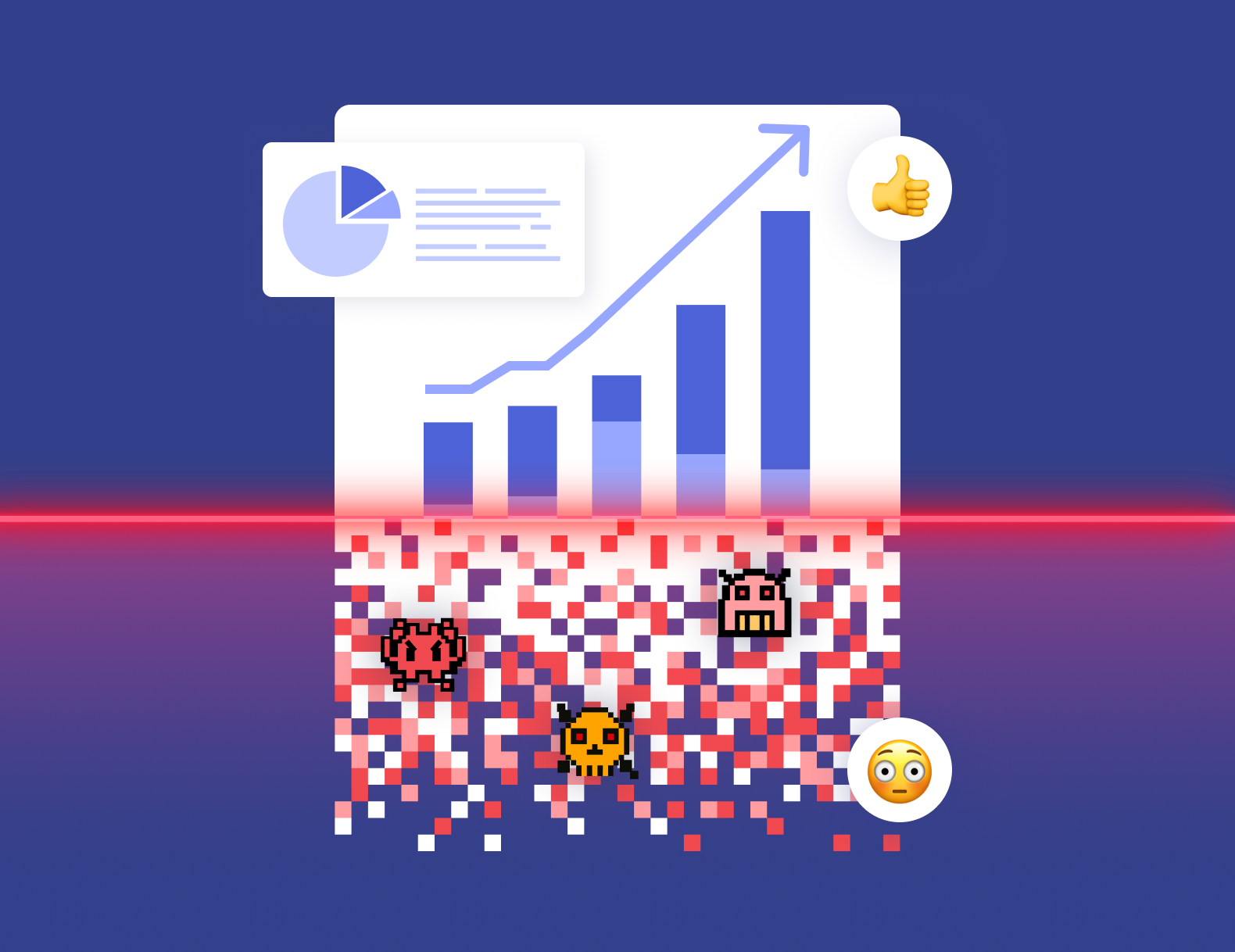How Sports Betting Operators Can Stop Paying for Bot Clicks

Click fraud is one of the silent drain on digital advertising budgets for sports betting operators. Bots, click farms, scripted bonus hunters, and fake users mimic real player activity, driving up costs without delivering first-time deposits (FTDs). The result? Inflated acquisition costs, polluted campaign data, and wasted marketing spend.
This blog unpacks why relying on detection after the click is not enough, why Google and Meta campaigns are particularly vulnerable, and how click fraud prevention software can help sportsbooks protect their budgets and build sustainable growth.
Why first-time deposits reveal more than sign-ups
Registrations are only part of the acquisition story
Sportsbooks often celebrate a surge in sign-ups. But registrations do not guarantee revenue. Many bots are designed to mimic real player behaviour, filling out forms to appear legitimate. If your acquisition metrics stop after the click or at registrations, you could be rewarding traffic that never generates real betting activity.
FTD data connects ad spend to actual betting revenue
First-time deposits are the clearest signal of genuine acquisition. They link campaign spend directly to revenue-generating players. By tracking FTDs, operators can expose the gap between sign-ups and actual deposits, revealing where bots are inflating acquisition numbers.
Case in point: William Hill’s success with TrafficGuard
As one of Britain’s largest betting brands, William Hill faced persistent invalid activity across its paid search campaigns. Fraudsters were mimicking real users, claiming sign-up bonuses, and repeatedly clicking on branded ads, draining budgets and distorting performance data.
By integrating TrafficGuard’s PPC Protect solution, William Hill regained control of its acquisition spend by recovering and reallocating £79,000 each month across UK and international campaigns. This reclaimed budget was reinvested to drive stronger, more efficient customer acquisitions.
🎥 Watch the full customer story:
The hidden cost of after-click bot detection
Why filtering fake traffic on sportsbook sites is too late
Many operators rely on detection systems embedded on their websites to identify invalid traffic. But by the time a fake click reaches your site, you have already paid for it. Post-click detection does not prevent spend from leaking out; it only tells you what you have already lost.
Paying for clicks that never turn into deposits
The cost of bot clicks is not just wasted media spend. Invalid traffic corrupts campaign data. Platforms like Google Ads and Meta use engagement signals to optimise delivery. When those signals are polluted by bots, algorithms learn the wrong behaviours, making your campaigns less efficient over time.
For a deeper dive into industry trends, explore our guide: Six Things You Should Know About Sports Betting and Click Fraud.
Google and Meta campaigns under pressure
Why Google Ads for sportsbooks attract high bot activity
High-value keywords in sports betting, such as “bet on football” or “online casino bonus”, are prime targets for fraudsters. With cost-per-click often exceeding £50 for competitive terms, bots represent a lucrative opportunity to drain budgets. Without proactive click fraud prevention software, sportsbooks risk paying for thousands of invalid clicks every month.
For more on protecting Google campaigns, read: TrafficGuard vs Traditional Click Fraud Filters.
Why Meta campaigns show inflated engagement from fake clicks
Meta ads are particularly vulnerable to incentivised and automated engagement. Fake likes, shares, and clicks inflate performance dashboards but fail to deliver real player deposits. Operators relying solely on Meta’s native filters risk overlooking a large portion of invalid activity that slips through undetected.
And while Meta continues to remove millions of fake accounts every quarter, that alone proves bots are alive and active across the platform. The real issue is that once a bot interacts with your ad, even once, it becomes a magnet for your CPM. Your campaigns are then optimised toward the very behaviour you’re trying to avoid, amplifying the problem instead of fixing it.
See how our TrafficGuard for Social solution provides real-time invalid traffic tracking and prevention for Meta campaigns.
Preventing bot clicks before they happen
Moving from detection to prevention in sports betting ads
To stop paying for bot clicks, operators must move beyond detection and embrace prevention. This means blocking invalid traffic at the impression or click level, before ad spend is wasted. Prevention safeguards budgets while ensuring only genuine players engage with your campaigns.
Tools that block invalid traffic at the source
Click fraud prevention software, like TrafficGuard for Search and TraffiGuard for Social integrates directly with ad platforms. By verifying every click in real time and applying rules such as click frequency limits, sportsbooks can prevent click fraud before it skews campaign data.
Curious how much of your current budget is lost to bots? Try our Invalid Traffic Calculator to estimate the impact on your campaigns in under two minutes.

Building sustainable growth with verified traffic
Clean acquisition signals that improve paid media bidding
Verified traffic sends clean signals back to Google and Meta. This allows algorithms to optimise campaigns around real players rather than bots, improving bidding efficiency and return on ad spend.
Accurate data that supports long-term betting operator growth
When campaign performance reflects genuine user behaviour, operators gain clarity on where budgets deliver the highest returns. This creates a foundation for long-term growth, where every marketing dollar fuels actual betting activity rather than subsidising fraudsters.
Learn more in our guide: Stop Losing Ad Spend to Invalid Traffic.
Final thought
Sportsbooks cannot just detect bots, they need to stop them
Detection alone is no longer enough. Sports betting operators must adopt proactive click fraud prevention to stop paying for bot clicks. By investing in real-time protection, sportsbooks protect their ad spend, ensure accurate campaign optimisation, and unlock sustainable growth.
FAQs & Key Takeaways
1. What is click fraud protection?
Click fraud protection is technology that identifies and blocks fake clicks from bots, click farms, and malicious actors. It prevents wasted ad spend and ensures that marketing budgets reach genuine users. Platforms like TrafficGuard provide real-time protection against fraud across Google Ads, Meta, and affiliate networks.
2. How to detect click fraud in sports betting?
To detect click fraud in sports betting, analyse traffic patterns for unusual click spikes, repeated sign-ups without deposits, or high activity from suspicious locations. Advanced fraud detection tools use behavioural analytics and machine learning to identify invalid clicks in real time before they distort campaign data.
3. What are the types of affiliate fraud?
Affiliate fraud takes many forms, including cookie stuffing, fake sign-ups, bot-driven traffic, and bonus abuse. These tactics manipulate attribution models and inflate commission costs. Using affiliate fraud prevention software helps identify and block fraudulent partners to protect performance integrity.
4. How to prevent affiliate fraud in gambling?
To prevent affiliate fraud in gambling, monitor partner activity closely and validate traffic sources. TrafficGuard’s affiliate fraud prevention solution tracks user behaviour across campaigns, ensuring you only pay for verified conversions. Real-time detection blocks bots and synthetic accounts before they trigger payouts.
5. What tools are used for fraud detection?
Leading fraud detection tools use a mix of behavioural analytics, device fingerprinting, and click validation to filter out invalid activity. TrafficGuard’s fraud detection software integrates directly with Google Ads and Meta to prevent bot traffic at the source, improving ad performance and budget efficiency.
6. How does machine learning help in fraud detection?
Machine learning helps detect fraud by analysing billions of signals to distinguish between genuine users and automated bots. It continuously learns from click patterns, user behaviour, and conversion data, adapting to new fraud techniques over time. TrafficGuard applies these models in real time to detect and block evolving threats.
7. What is the impact of click fraud on budgets?
Click fraud inflates costs, drains PPC budgets, and corrupts campaign data. In sports betting, even a small percentage of invalid clicks can lead to thousands in wasted spend each month. Implementing click fraud prevention software ensures that every pound of ad spend targets real potential players.
8. How to ensure compliance in online gambling?
Compliance in online gambling goes beyond regulation. It also involves responsible advertising. Fraudulent or non-human traffic can cause ads to reach ineligible audiences, violating platform and jurisdictional rules. Verified, compliant traffic through TrafficGuard’s protection suite helps gambling operators maintain brand integrity and meet advertising standards.
Get started - it's free
You can set up a TrafficGuard account in minutes, so we’ll be protecting your campaigns before you can say ‘sky-high ROI’.
Explore More Blogs
Subscribe
Subscribe now to get all the latest news and insights on digital advertising, machine learning and ad fraud.








